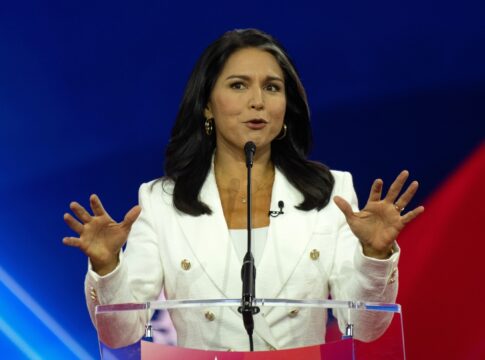Director of National Intelligence Tulsi Gabbard has referred two intelligence leaks to the Department of Justice for prosecution. Her unprecedented move has sparked significant debate about intelligence community operations and transparency, vowing that those responsible will face the “full force of the law.” Do these intelligence leaks expose national security vulnerabilities?
Gabbard Takes Action Against Intelligence Leakers
Tulsi Gabbard, the recently appointed Director of National Intelligence, has declared war on what she describes as “deep state criminals” responsible for leaking classified information to major media outlets. She has referred two recent intelligence leaks to the Department of Justice for prosecution, with a third case reportedly forthcoming.
The most prominent leak appeared in the Washington Post, which published intelligence findings contradicting President Trump’s claims about Venezuelan gang members infiltrating the United States. According to Gabbard, this classified information was “twisted and manipulated to convey the exact opposite finding” of what intelligence showed.
Politicization of our intelligence and leaking classified information puts our nation’s security at risk and must end. Those who leak classified information will be found and held accountable to the fullest extent of the law.
Today, I referred two intelligence community LEAKS…— DNI Tulsi Gabbard (@DNIGabbard) April 23, 2025
Task Force Established to Combat Unauthorized Disclosures
Gabbard has established a specialized task force to address the problem of unauthorized disclosures of classified intelligence information. She emphasized that “politicization of our intelligence and leaking classified information puts our nation’s security at risk and must end,” highlighting the serious nature of these breaches.
The Director has been unequivocal in her condemnation, promising that “those who leak classified information will be found and held accountable to the fullest extent of the law.” Her statements reflect the administration’s hardline approach to plugging intelligence leaks that have plagued previous administrations.
The Department of Justice and the FBI are now involved in investigating these leaks, with Gabbard expressing her eagerness to work with both agencies to “investigate, terminate, and prosecute these criminals.” This coordinated approach represents a substantial escalation in the government’s response to unauthorized disclosures.
.@TulsiGabbard HAS JUST REFERRED MULTIPLE INTEL LEAKERS TO THE DOJ FOR CRIMINAL PROSECUTION.
LOCK 🔐 THEM UP AND THROW AWAY THE KEY.🔑
“These Deep-State Criminals Leaked Classified Information For Partisan Political Purposes To Undermine President Trump's Agenda.”… pic.twitter.com/e1qmnLMP3d
— 🦅 Eagle Wings 🦅 (@CRRJA5) April 24, 2025
Defense Department Conducts Parallel Investigation
The Department of Defense is conducting its investigation into possible leaks, which has already resulted in the firing of three former Defense officials. Defense Secretary Pete Hegseth explained the department’s position, stating, “We said, ‘enough is enough; we’re going to launch a leak investigation.'”
The fired officials—Dan Caldwell, Darin Selnick, and Colin Carroll—have denied leaking information and plan to sue for wrongful termination. Caldwell has specifically claimed that the investigation was weaponized against him, setting the stage for potential legal battles that could further expose internal tensions within the defense establishment.
Secretary Hegseth himself is under scrutiny for allegedly sharing details of a US foreign military attack in a Signal group chat. President Trump has dismissed these allegations as “fake news” and attributed them to disgruntled employees, further complicating an already contentious situation within the defense and intelligence communities.
Representative Don Bacon has suggested the firing of Secretary Hegseth over the ongoing leaks, indicating that concerns about operational security extend beyond party lines. The Washington Post has not commented on Gabbard’s actions, maintaining journalistic privilege regarding the protection of sources.


